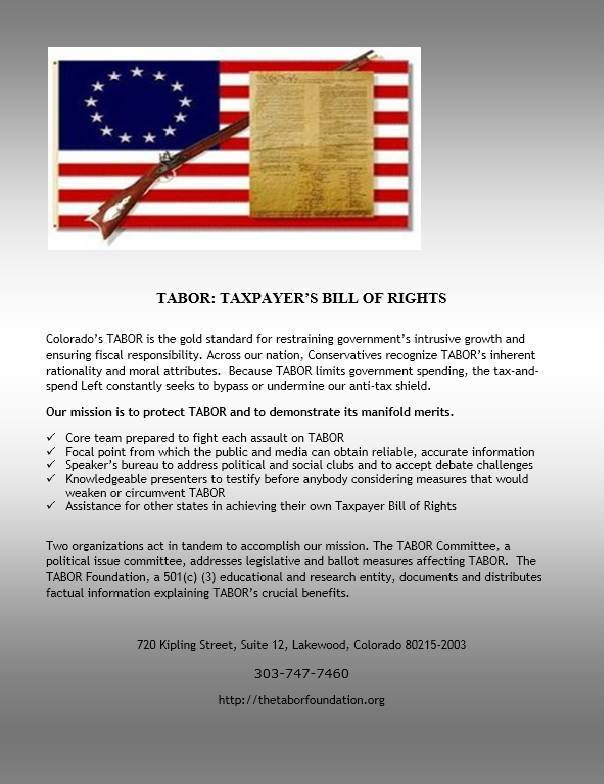By Charles Ashby
Saturday, March 21, 2015
DENVER — The Colorado Legislature has entered Bizarro World.
The revenue forecast it received last week confirmed that while the state’s economy is booming overall, and its coffers are overflowing with money, it can’t fund everything lawmakers on both sides of the political aisle want because it must return some of the extra money to taxpayers.
That has led many under the golden dome to believe they’ve entered an old Superman comic book that featured a backward Earth.
And it’s all because of the Taxpayer’s Bill of Rights.
That 1992 constitutional amendment put a permanent cap on how much government can grow each year, and requires that any long-term debt and tax increases be approved by voters.
While some lawmakers credit TABOR for preventing the state from going even deeper into the hole during the recent recession, others are blaming provisions in it for hindering the state’s ability to keep pace with funding such big-ticket items as roads and schools.
And now that forecasts are calling for anywhere from $70 million to $220 million in excess TABOR revenues, lawmakers are debating whether to try to work around TABOR limits and fill funding gaps.
Lawmakers on both sides of the aisle already have killed measures their constituents want because they would have an impact on those TABOR refunds, even if they bring in new revenue, such as a measure to allow off-highway vehicles to be licensed to drive on state roads because it would bring in cash, and a felony DUI bill because of its $17 million price tag.
For the first time ever, fiscal impact notes that legislative staffers attach to every bill introduced into a session include what they would do to the TABOR refunds, and if they cut into general fund money that goes to those big-ticket items.
TABOR ISSUES
Under TABOR’s strict provisions, government budgets can only grow by inflation and population growth. But some lawmakers are questioning both as not accurately reflecting how governments operate.
At the same time, other TABOR provisions lump all state revenue into one big pile when it comes to calculating when a refund is required. That formula, however, doesn’t take into account that much of the revenue already is dedicated to specific uses.
The inflation rate under ?TABOR is based on the consumer price index of the Denver-Boulder area, which makes no sense to Sen. Pat Steadman, D-Denver.
Steadman, the longest-serving member of the Legislature’s Joint Budget Committee, says the price of milk that consumers pay has nothing to do with the cost of building a new school or prison.
“The inflation rate, that’s based upon a market basket of goods that consumers buy, but the goods and services government buys are very different from what the average household consumer buys,” Steadman said. “We’re buying prisons. We’re buying roads. We’re buying a lot of things that most people don’t have to pay for, and that has nothing to do with the consumer price index.”
When it comes to population growth, TABOR impacts could spell danger to areas of the state that see their populations decrease, such as in rural Colorado. Continue reading →


